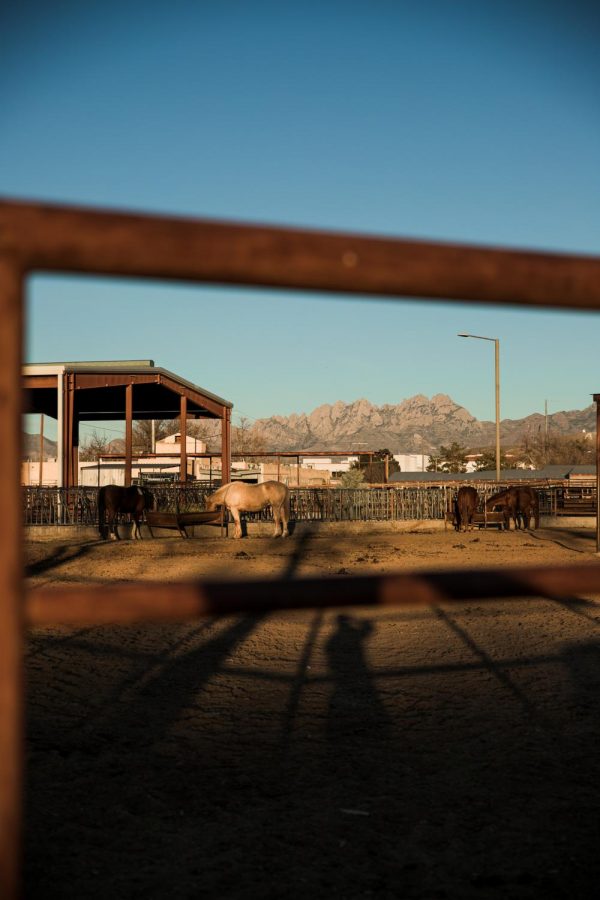NMSU College of ACES receives grant supporting sustainable beef production research
NMSU received a grant to support research in sustainable beef production.
The New Mexico State University College of Agricultural, Consumer and Environmental Sciences was awarded a grant of $8.9 million to conduct research concerning how to increase the sustainability of beef production in the Southwest region of the U.S.
Project Director and Professor of Rangeland Science, Andres Cibils, said the research is a coordinated agricultural project that besides research, also involves extension and k-12 education. The project will be testing three strategies to increase sustainability of beef production.
“The strategies are: use of heritage genetics, in this case Criollo cattle; precision ranching, and alternative beef supply chain options,” Cibils said. “Beef production on southwest ranches and in the Ogallala region, where most of the southwest calves are finished, [are] under increased pressures due to climate change (hotter and drier conditions) and markets. Our project seeks [to] address these challenges.”
As this is a study for beef sustainability, Cibils was asked about the breeds of beef cattle the data would be collected from.
“We will be using Raramuri Criollo cattle and will compare them to Angus and Brangus cattle on [the] five ranches located in New Mexico, California, Utah, and South Dakota and two feed lots located in New Mexico and Texas,” Cibil said.
NMSU student Angel Silva expressed her interest in the research project.
“Climate change is a thing, and it’s happening right now,” Silva said. “In a way, I’m glad that we’re doing this because we’re seeing what we need to change and how we can do that.”
According to Cibils, a multidisciplinary team submitted the grant proposal to the National Institute of Food and Agriculture’s Sustainable Agricultural Systems program. NIFA is a federal agency under the U.S. Department of Agriculture. The program is a highly competitive process where only six grants were awarded nation-wide in 2019.
The multidisciplinary team is composed of scientists and extension specialists from NMSU, the USDA, Agriculture Research Service, Jornada Experimental Range, ARS Climate Hubs, Texas A&M University, Kansas State University, other ARS labs and two science education non-governmental organizations.
When asked, Cibils said NMSU students were also working with the research team on the project. Other students who may be interested in the research have the opportunity to apply by emailing Cibils.
The project commenced Aug. 1, 2019 and will take approximately five to six years. During this time, ranchers will be cooperating with the team. Research and data will be collected on five ranches and two feedlots. One feedlot will be located in New Mexico and the second in Texas.

Victoria Del Toro is attending her third year at New Mexico State, majoring in Animal Science with a minor in Equine. Her goal, after graduating with her...

